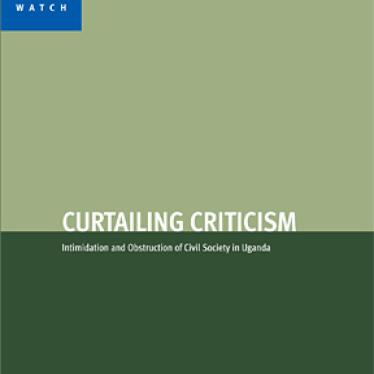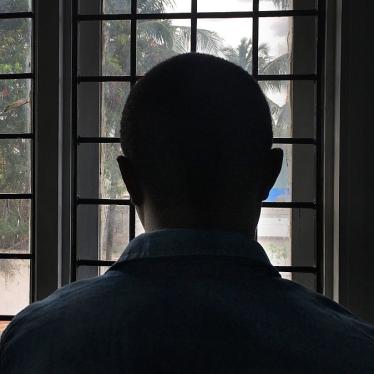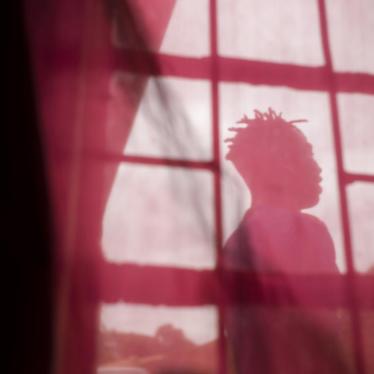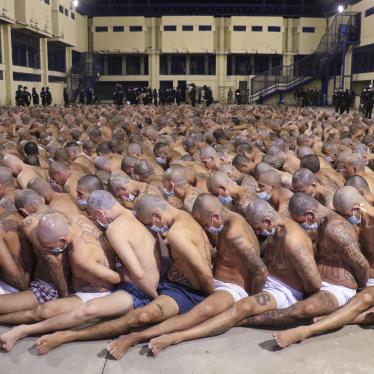(Nairobi) – Uganda’s pending Anti-Homosexuality bill violates the country’s human rights obligations and is a barrier to advancing critical public health goals.Uganda’s international donor partners should clearly and publicly specify the consequences for relations with Uganda if the Anti-Homosexuality bill becomes law. Uganda’s parliament passed the bill on December 20, 2013, and President Yoweri Museveni has indicated that he intends to sign the bill.
The bill would increase penalties for some forms of consensual same-sex conduct between adults, curtail constitutionally protected rights to privacy, family life, and equality, and violate the rights to freedom of association and expression. Museveni’s government, over his 28 years in office, has increasingly suppressed freedom of assembly, expression, and association and threatened civil society groups working on a range of issues, including corruption, land, oil, and good governance. This bill is the latest troubling sign of disregard for fundamental human rights protections.
“If Museveni signs the Anti-Homosexuality bill, it would be yet another blow to fundamental human rights in Uganda,” said Daniel Bekele, Africa director. “Uganda’s international partners need to show unequivocally that if this bill is passed, it will not be business as usual with the Ugandan government.”
Uganda’s constitution, in article 29, contains strong protections for freedom of expression, conscience, and belief. The Ugandan Human Rights Commission, Uganda Law Society, and the Foundation for Human Rights Initiative have all publicly criticized the Anti-Homosexuality bill as unconstitutional.Because the bill criminalizes the undefined “promotion” of homosexuality, there are far-reaching implications beyond the increase in punishments for same-sex sexual conduct. If the bill is passed, a person could go to prison simply for expressing an opinion. Public health promotion and prevention efforts targeting “at risk” groups might have to be curtailed, and health educators and health care providers could be at risk of criminal prosecution.
Local and international nongovernmental organizations doing advocacy work on human rights issues would be similarly in peril. A range of foreign-funded programs, especially in the health and human rights sectors, would likely be forced to end their work or face criminal sanction because the bill’s criminalization of promotion blatantly curtails the rights to free expression for anyone in Uganda, including foreigners.
Uganda’s international partners, including the United States, the UK, and the EU, have consistently condemned the bill over the many years it has been pending in Uganda’s parliament. On February 17, President Barack Obama said the bill’s passage would “complicate” the US-Uganda relationship, but did not specify the precise consequences. The US and other international donors routinely engage with the Ugandan government on a range of security and counterterrorism issues across Africa.
The US should strongly demonstrate its concern for Uganda’s deteriorating human rights environment by temporarily recalling the US ambassador and the US Agency for International Development Uganda director to Washington, DC, for strategic consultations. Uganda’s Civil Society Coalition for Human Rights and Constitutional Law, consisting of 51 local nongovernmental groups opposed to the bill, has also recommended such a recall.
The US should also review funding assistance to Uganda to ensure that US funding is not used to further prosecution of anyone under the law. In particular funding for the police should be subject to close scrutiny as they would be legally mandated to enforce this law. All US-funded health research, especially related to HIV, might also need to be re-reviewed by ethics committees to examine if research participants face negative consequences from the law or if health personnel are at risk of prosecution.
“There is real urgency now that Museveni has stated his intention to sign the bill,” Bekele said. “The US should temporarily recall the ambassador to conduct strategic consultations on the US-Uganda relationship, while making clear the range of concerns for yet another clawback to human rights in Uganda.”








